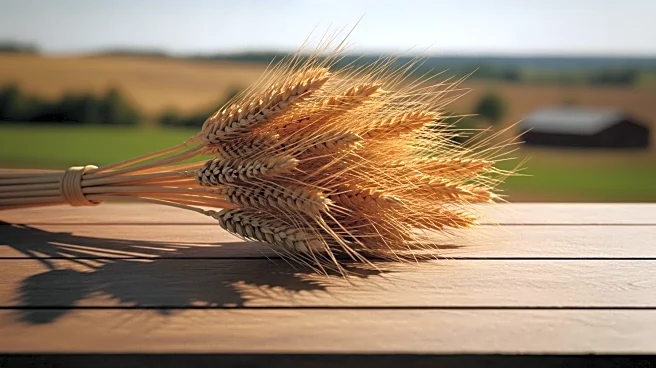What's Happening?
The U.S. agriculture sector is facing challenges due to low crop prices and trade tariffs, particularly affecting farmers as harvest approaches. The Farm Progress Show in Illinois highlighted concerns among farmers about the impact of President Trump's trade policies, especially with China, historically a major buyer of U.S. soybeans. Tariff tensions have created uncertainty in the North American farm market, leading to financial strain and depressed crop prices. Machinery makers are also affected by levies on steel and aluminum, raising manufacturing costs while demand remains low.
Why It's Important?
The ongoing trade tensions and tariffs are significant for the U.S. agriculture sector, which is a key voting bloc for President Trump. The financial strain on farmers due to increased costs and uncertain export markets could have broader economic implications, potentially affecting rural economies and related industries. The situation underscores the need for resolution in trade negotiations, particularly with China, to stabilize the market and support American farmers.
What's Next?
Farmers are adjusting to the shifting trade conditions, with some making smaller investments in machinery and equipment. The Trump administration has provided some relief through increased biofuel blending guidelines and crop insurance protection. However, the need for a trade deal with China remains critical to unlock market potential and support the agriculture sector. Companies like CNH and Deere & Co. are planning investments in U.S. manufacturing, which may help mitigate some of the impacts.










